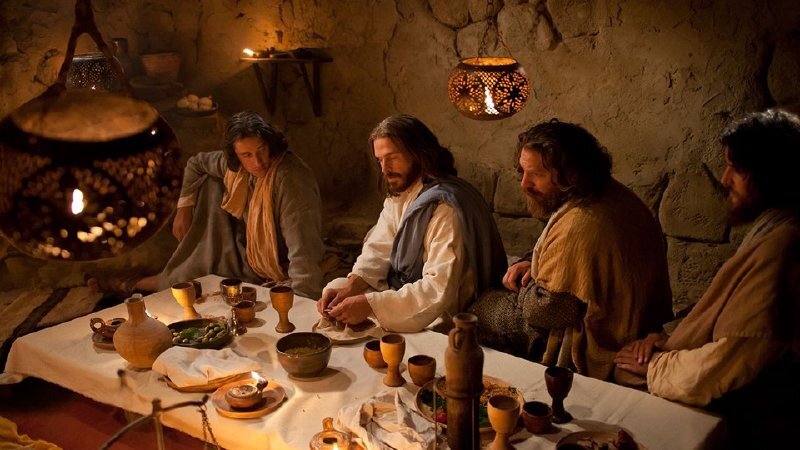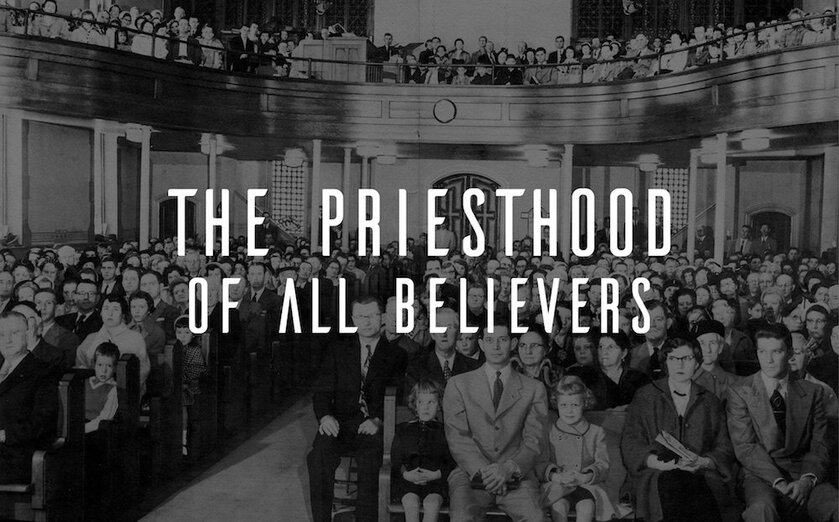From Loaves to Life: Jesus’ Test of Faith and the Sufficiency of His Sacrifice
John 6:5
Lifting up his eyes, then, and seeing that a large crowd was coming toward him, Jesus said to Philip, "Where are we to buy bread, so that these people may eat?"
The stage is bein set for the miracle of the feeding of the five thousand, revealing Jesus’ compassion and divine provision. But it's about more than that even. John hints at this...
John 6:6
He said this to test him, for he himself knew what he would do.
His question to Phillip reveals that this moment is not just about meeting physical needs. It’s a deliberate test of faith, with Jesus already knowing the miraculous provision He will provide. This shows that Jesus’ question to Philip wasn’t born of uncertainty but was intentional, designed to stretch Philip’s faith and reveal his perspective. And the reply's to his question reveal our human limitations.
It’s a profound teaching moment orchestrated by Jesus to challenge the disciples faith and expose the human tendency to focus on the material things rather than God’s limitless power. John’s Gospel consistently points out deeper spiritual truths. The feeding miracle (John 6:1–14) isn’t just about bread, it foreshadows the coming lesson about Jesus as the Bread of Life (John 6:35), who meets our ultimate spiritual hunger. Philip’s response shows how easily we lean on human reasoning. Yet, Jesus takes a boy’s small offering (five loaves, two fish) and multiplies it beyond imagination.
Now this was happening during passover. And this passover meal is foreshadowing the Last Supper. John’s account of the feeding of the five thousand is rich with details that resonate with the theology of the sacrament where Jesus offers His body and blood under the appearance of bread and wine.
In John 6:11, Jesus
"took the loaves, and when he had given thanks, he distributed them to those who were seated."
This sequence, taking bread, giving thanks, and distributing it, mirrors the actions of Jesus at the Last Supper, where He took bread, gave thanks, broke it, and gave it to His disciples, saying, "This is my body."
The Greek word for "given thanks" (eucharistēsas) in John 6:11 is derived from the same root as "Eucharist". And the blessing is that Jesus transforms a meager offering (five barley loaves and two fish) into enough to feed thousands, with twelve baskets of fragments left over (John 6:12–13).
But what comes of this blessing?
As a result of this free gift of provision does the large crowd of followers become spirit filled worshipers who love God and serve his kingdom?
Well, they did see he as a prophet.
John 6:14
When the people saw the sign that he had done, they said, "This is indeed the Prophet who is to come into the world!"
And so, Jesus perceives that their motives were that they would thrust kingship upon him, so he retreats from them. Later John breezes past the story about Jesus walking on water towards them while they were in a boat. Almost as if this miracle had little to no spiritual significance in his mind. He plays it like it's just one of those things that Jesus does, nothing to see here.
So, now they're on the other side of the sea and the large crowds followed him there and approached him. And they said to him, "Rabbi, when did you come here?" (vs. 25).
And then Jesus answered them,
John 6:26-27
"Truly, truly, I say to you, you are seeking me, not because you saw signs, but because you ate your fill of the loaves. Do not work for the food that perishes, but for the food that endures to eternal life, which the Son of Man will give to you. For on him God the Father has set his seal."
And now we're going to get to the point that John was so rather to reach.
John 6:28
Then they said to him, "What must we do, to be doing the works of God?"
The crowd’s response reveals a mix of awe, misunderstanding, and misplaced motives, which John uses to set up this pivotal teaching on faith and eternal life. And it's a great question. Because even today, two thousand years later, the people argue over what constitutes "work" in regard to faith and salvation. There are many teachers and preachers of God's word that encourage people to seek Jesus with wrong motivations. They encourage people to do the work of God with wrong motivations. Seeking Jesus through carnal rewards. But Jesus wants them to labor for the things that bring eternal life, not earthly rewards.
And so Jesus answered them,
John 6:29
"This is the work of God, that you believe in him whom he has sent."
The crowd’s question assumes that "doing the works of God" involves specific actions or achievements to secure God’s blessing. This aligns with a common religious perspective of the time, rooted in adherence to the Mosaic Law or performing righteous deeds. And frankly this hasn't changed even with the rise of Christianity. Their focus on "works" (plural) suggests they expect a list of tasks, much like Philip’s earlier focus on human effort (buying bread) in John 6:5–7. They can't help it, it's human nature to see matters of spiritual significance through this works based lens.
Their question hints at a transactional view of faith: if they do the right things, they’ll earn the "food that endures to eternal life." Jesus' response is a pivotal moment, as he redefines "work" not as a series of tasks but as a singular act of faith, believing in Him. The Greek word for "work" (ergon) is singular here, emphasizing that faith itself is the primary response God seeks. By calling faith the "work of God," Jesus underscores that even our belief is enabled by God’s grace, which corresponds with the New Testament understanding...
Ephesians 2:8–9
"For by grace you have been saved through faith. And this is not your own doing; it is the gift of God, not a result of works, so that no one may boast."
Don't strive for material things, but strive for spiritual things. The spiritual life is superior to the material, it endures. And that's the work of faith, endurance.
How does one "endure" in faith?
What work can you do to please God?
Jesus' answer was very simple, "believe". And it's notable that the crowds response revealed that they weren't 100% on board with this absolute faith.
John 6;30
So they said to him, "Then what sign do you do, that we may see and believe you? What work do you perform?"
And they go on to talk about materialism again, talking about manna from heaven, immediately going after some material reward for their faith. This is that "what do I get out of this" thing that they do. That they do and we do. It's transactional faith. They assume pleasing God involves a checklist of deeds to earn spiritual rewards, like the “food that endures to eternal life” (John 6:27).
So what's the thing that Jesus does? What's the "work" he does so that they will have faith?
Jesus..."What sign do you do, that we may see and believe you? What work do you perform?"
Jesus’ offer of Himself as the "true bread from heaven" is the food that gives eternal life (John 6:32–35). But are they filled? Are they satisfied?
How many more times does he need to give his life?
Do you see whats happening here?
Jesus tells them the work (singular) that they must do, have faith in Him. And they want him to perform works (plural) for them.
On the one hand we have the sufficiency of His self-gift, and on the other we see the crowd’s persistent dissatisfaction. This underscores the tragedy of their unbelief and points to the ultimate “work” Jesus will perform, His sacrificial death on the cross. But it also highlights the crowds inability to see their depraved desires for what they really are. They come to Him because they want tangible proof, more material provision. The day before Jesus filled their bellies, but that was yesterday, this is today. What you gonna do for me today Jesus.
The crowd’s demand for more signs shows they fail to recognize that Jesus Himself is the ultimate sign and provision. His offer of Himself as the Bread of Life is complete and sufficient; no additional "works" are needed to prove His identity or earn their faith. And this again applies and is affirmed in the New Testament...
Hebrews 10:10
"We have been sanctified through the offering of the body of Jesus Christ once for all."
But are they filled? Are they satisfied?
Well the truth was, spiritually they remain unsatisfied, as their demand for another sign reveals. And likewise many continue today in this materialistic view. I don't mean they want wealth and other forms of prosperity, which many no doubt do, but I mean they want Jesus' work, his body, his sacrifice, over and over again. They want to crucify Jesus over and over again.
His "once for all" offering and the crowds of people demanding more is a powerful reflection on human nature and faith, and raises questions about how we receive His sufficient gift. And its ironic because many abandon Him over the call to "eat the flesh of the Son of Man" (John 6:53), while many others will demand he die over and over again so they can get their fill of his body.
They want Jesus' offering on a regular basis. His work isn't sufficient for their faith. At least not in that one moment. It must be repeatedly done for them.
Is this the faith Jesus gives?
Expecting God to "prove" His love through constant interventions?
Approaching the Eucharist transactionally, as if each reception is a new sacrifice rather than a participation in the one sacrifice of the cross. Are they forcing Jesus to be present for their faith to be realized? Jesus must show up in the bread, so that the faith is made whole.
Like the crowd, some see Jesus’ works (e.g., miracles, the Eucharist) but don’t believe in His sufficiency, seeking additional "signs" to fill their spiritual void. Focusing on material or emotional outcomes. It is said that The Eucharist, as the ongoing presence of Jesus’ sacrifice, is meant to nourish faith. But without a genuine faith not qualified by a transactional attitude, even this gift can be received superficially, leaving people unfulfilled.
Faith needs to be transcendent, it must transcend our human flesh and our human desires. To remain in Christ, our faith must remain in Him and his work once for all.
It's a compelling call to deepen our relationship with Him beyond our physical relationships.
Food for thought.




















